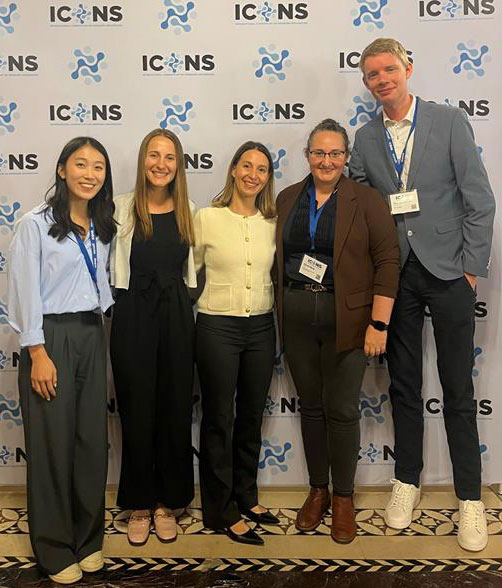-
- Find Care
-
- Visitor Information
- Find a Location
- Shuttles
- Visitor Policies
-
-
- Our Virtual Care Options
- 24/7 Virtual Care
- Virtual Visits for Primary & Specialty Care
- Online Second Opinions
- Participate in Research
-
- Contact us
-
- For Innovators
- Commercialization Guide for Innovators
-
-
- Research News
- Alzheimer's Disease
- Artificial Intelligence
-
- Overview
-
- Overview
- Getting Started
- New to Mass General Brigham
- International Patient Services
- What Is Patient Gateway?
- Planning Your Visit
- Find a Doctor (opens link in new tab)
- Appointments
- Patient Resources
- Health & Wellness
- Flu, COVID-19, & RSV
- Billing & Insurance
- Financial Assistance
- Medicare and MassHealth ACOs
- Participate in Research
- Educational Resources
- Visitor Information
- Find a Location
- Shuttles
- Visitor Policies
- Find Care
-
- Overview
- Our Virtual Care Options
- 24/7 Virtual Care
- Virtual Visits for Primary & Specialty Care
- Online Second Opinions
-
- Overview
- Participate in Research
-
- Overview
- About Innovation
- About
- Team
- News
- For Industry
- Venture Capital and Investments
- World Medical Innovation Forum (opens link in new tab)
- Featured Licensing Opportunities
- For Innovators
- Commercialization Guide for Innovators
- Contact us
-
- Overview
- Information for Researchers
- Compliance Office
- Research Cores
- Clinical Trials
- Advisory Services
- Featured Research
- Two Centuries of Breakthroughs
- Advances in Motion (opens link in new tab)
- Brigham on a Mission (opens link in new tab)
- Gene and Cell Therapy Institute
- Research News
- Alzheimer's Disease
- Artificial Intelligence
-
- Overview
-
- Overview
- Residency & fellowship programs
- Brigham and Women's Hospital
- Massachusetts General Hospital
- Mass Eye and Ear
- Newton-Wellesley Hospital
- Salem Hospital
- Integrated Mass General Brigham Programs
- Centers of Expertise
- Global & Community Health
- Health Policy & Management
- Healthcare Quality & Patient Safey
- Medical Education
- For trainees
- Prospective trainees
- Incoming trainees
- Current trainees
- Continuing Professional Development
Mass General Brigham Researchers Share Tool to Improve Newborn Genetic Screening
As international programs explore expanding the use of newborn genomic sequencing, machine learning can help to improve and standardize what genes and conditions should be included.
Authorship: In addition to Gold and Green, Mass Brigham General authors include Sarah Bick, and Sophia Adelson. Additional authors include Thomas Minten, Sophia Adelson, Nils Gehlenborg, Laura M. Amendola, François Boemer, Alison J. Coffey, Nicolas Encina, Alessandra Ferlini, Janbernd Kirschner, Bianca E. Russell, Laurent Servais, Kristen L. Sund, Ryan J. Taft, Petros Tsipouras, Hana Zouk, ICoNS Gene List Contributors, David Bick and the International Consortium on Newborn Sequencing (ICoNS).
Disclosures: Amendola, Coffey and Taft are employees and shareholders at Illumina Inc. Gehlenborg is co-founder and equity owner of Datavisyn. Gold provides occasional consulting services to RCG Consulting and receives honoraria from Ambry Genetics. Green has received compensation for advising the following companies: Allelica, Atria, Fabric, Genomic Life and Juniper Genomics; and is co-founder of Genome Medical and Nurture Genomics. Russell and Sund are consultants at Nurture Genomics. Servais received personal compensation from Zentech and Illumina Inc. Tsipouras is a co-founder of PlumCare RWE, LLC.
Funding: This work was supported by the following grants: T32GM007748,, R01HG011773, K08HG012811-01, TR003201, HD077671, TR003201, and EU-IMI H2020 GRANT (101034427).
Paper cited: Minten T, et al. “Data-driven consideration of genetic disorders for global genomic newborn screening programs” Genetics in Medicine DOI: 10.1016/j.gim.2025.101443
Additional links
Media contact
About Mass General Brigham
Mass General Brigham is an integrated academic health care system, uniting great minds to solve the hardest problems in medicine for our communities and the world. Mass General Brigham connects a full continuum of care across a system of academic medical centers, community and specialty hospitals, a health insurance plan, physician networks, community health centers, home care, and long-term care services. Mass General Brigham is a nonprofit organization committed to patient care, research, teaching, and service to the community. In addition, Mass General Brigham is one of the nation’s leading biomedical research organizations with several Harvard Medical School teaching hospitals. For more information, please visit massgeneralbrigham.org.
